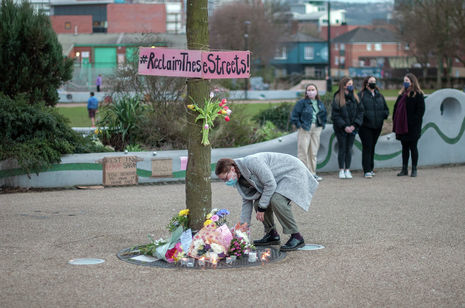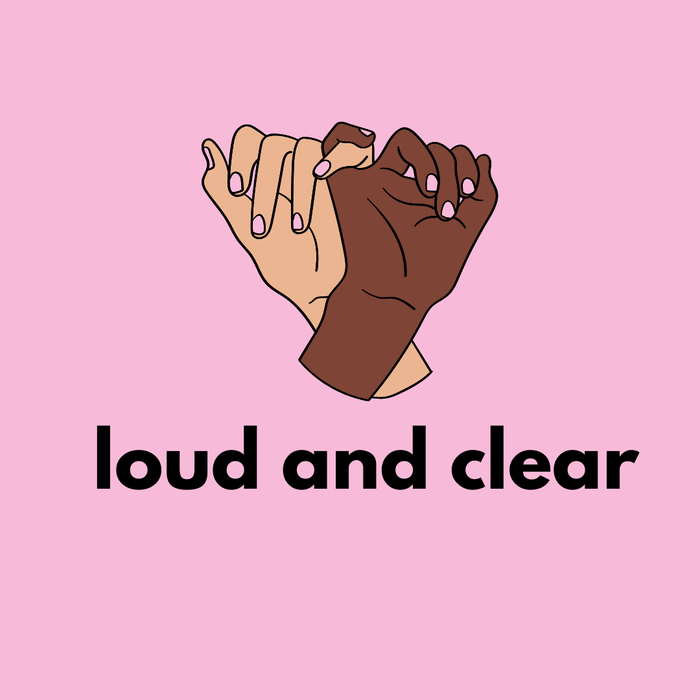We cannot allow the conversation around sexual harassment to die. Here’s how we can keep it alive.
In light of the murder of Sarah Everard and the recent survey exposing the pervasiveness of sexual assault and harassment, Niamh Curran argues that our current discourse does not go far enough in addressing the injustices so many women face.

Content Note: this article contains detailed discussion of sexual harassment and assault.
International Women’s Day 2021. How tragically ironic that a day intended to celebrate women could be followed by such a torrent of grief, violence, anger, fear, and most of all, disappointment. Disappointment at the enforcers of law who were meant to protect us rather than attack us; at the radio silence from the men whom we expected more from; at the women standing against us and not with us. We are disappointed, yes, but we are not surprised.
How could we be? Surprise and confusion are luxuries that we can no longer afford to enjoy. A statistic released recently sent shock waves through the British public: 97% of women in the UK have experienced sexual harassment or assault. Who the remaining 3% are baffles me, but the reverse statistic is the one that we’re all dying to know - what percentage of men have committed it?
“We’re not afraid of the catcalls or the stares. It’s the fear of the uncertain; of what could happen if we don’t get away quickly enough.”
Catcalling, harassment, being followed - trivialities, no? No. For anyone who hasn’t experienced this, imagine that every time you left the house, people were staring at you, hurling ‘compliments’ at you from across the street or from cars, invading your personal space. And you were just minding your own business. Many of us have been forced to learn from childhood to build up a protective suit of armour against such encounters, to brush it off and move on. But we’re not afraid of the catcalls or the stares. It’s the fear of the uncertain; of what could happen if we don’t get away quickly enough, if our aggressor doesn’t respond well to being ignored, or if they’re persistent. What we’re terrified of is becoming a name in the headlines like Sarah Everard.
Let that sink in for a minute. Every time we go outside, day or night, there’s a niggling fear in the back of our minds that we could be assaulted, kidnapped or murdered. Every time. Going for a peaceful walk alone instantly becomes a game of cat and mouse, as our danger radar pings up the moment our foot leaves the front door. Questions of caution flood our minds: will my clothes draw attention? Is that man following me? Can I defend myself if required? Our meticulous vigilance even amounts to planning and varying routes along busy roads, searching for women to sit with on a train, and calling a friend while we walk home.
Social media has been quick to point out that Sarah Everard complied with all these prescribed precautions (reiterating ‘she did all the right things’ on a constant loop) - an unproductive perspective that veers dangerously into the territory of victim-blaming. If she had worn tighter clothes, or not called a friend on the way home, would it have been her fault? No.
This is where education comes into play - and not the kind of education where young girls are taught defence mechanisms and how not to get assaulted though, admittedly, that could also have proved useful while growing up. Instead, we need the kind which teaches people to be respectful, kind and not entitled. Dismantle the ‘boys will be boys’ ethos, shatter the blue and pink binary and encourage open communication and sensitivity in all genders, not just in women.
After all, this is a problem that transcends mere sexism, since women of colour and members of the LGBT+ community are considerably more likely to be targets of street harassment, and generally garner only a fraction of the media attention. Bibaa Henry and Nicole Smallman were stabbed to death in a park in London in July; Dominique Fells was one of many black trans women murdered in the U.S. over the summer, yet none of them have become household names like Everard has.
“It can be awkward and difficult to call out your own friends on their behaviour, but it would be even harder down the line to reckon with the fact that they may have assaulted someone.”
Systemic change can come from the smallest of actions. Take US Supreme Court Justice Brett Kavanaugh, for example – if someone had reprimanded him in his youth for his entitled, contemptible attitude towards women, he might not have had such an open path to Blasey Ford, or to his climb up the greasy career pole to his gilded throne, where he now makes the very rules that facilitate male impunity.
Racist, sexist, homophobic and transphobic ‘jokes’ aren’t funny or harmless, and laughing, even out of politeness, signals that it’s acceptable to tell them. Of course, it can be awkward and difficult to call out your own friends on their behaviour, but it would be even harder down the line to reckon with the fact that they may have assaulted someone and you could have prevented it. More importantly, imagine just how “difficult” it would be for the person on the receiving end.
The onus isn’t only on men, however, because we women also have some team-building to catch up on. At 14, after being groped in the street, I was met with the ever-dreaded and ridiculous question, “What were you wearing?” from a friend whom I had turned to for comfort. Other times, we reduce our stories to flattery, normalise them and collectively ‘just live with it’.
These are all alarmingly warped perspectives that our societally-conditioned guilt has imposed on us. However small the encounter, being harassed on the street is a terrifying and stomach-turning ordeal that we could all do without. Minimising the impact that these experiences have on our daily lives does not help us to cope; it merely helps the aggressor repeat the offence.
We are also left with little hope for the effectiveness of law enforcement when the fact remains that hardly any rapists face real consequences; a staggering 1.7% of reported cases in the UK led to conviction in 2019, and victims continue not to be believed. So long as misogyny is allowed to run through the veins of the criminal justice system, rapists walk the streets with a permanent get-out-of-jail-free card, and we with our keys between our fingers.
With the passing of Priti Patel’s new bill, granting the police free rein to shut down any protests deemed to cause “annoyance” (a bill that seems to only apply to peaceful vigils and not belligerent anti-mask protests), Britain is terrifyingly just a few steps away from becoming a police state. Now more than ever is the time to be constructively vocal, not silently complicit, but the initial surge of support on social media is dwindling. We must keep the conversation alive in our personal lives. All we want is to feel safe, and to #reclaimthesestreets.
 News / Hundreds of Cambridge academics demand vote on fate of vet course20 February 2026
News / Hundreds of Cambridge academics demand vote on fate of vet course20 February 2026 News / University Council rescinds University Centre membership20 February 2026
News / University Council rescinds University Centre membership20 February 2026 News / Judge Business School advisor resigns over Epstein and Andrew links18 February 2026
News / Judge Business School advisor resigns over Epstein and Andrew links18 February 2026 News / Petition demands University reverse decision on vegan menu20 February 2026
News / Petition demands University reverse decision on vegan menu20 February 2026 News / Caius students fail to pass Pride flag proposal20 February 2026
News / Caius students fail to pass Pride flag proposal20 February 2026










